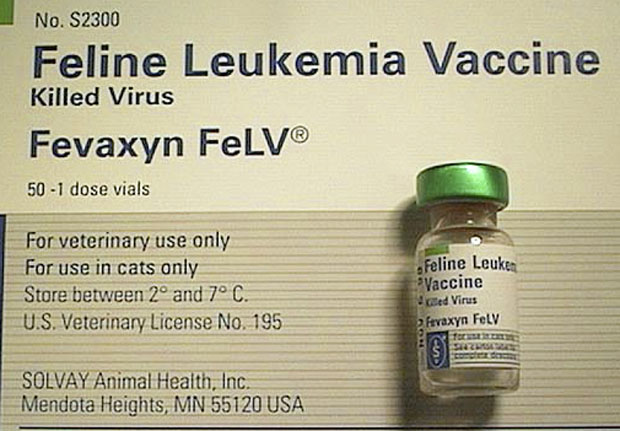
The Feline Leukemia Virus (FeLV) is a very serious disease in the feline world. It is caused by a virus that spreads from cat to cat through saliva, urine and respiratory secretions. This means that cats that share litter pans and feeding bowls as well as cats that fight are at risk. FeLV differs from Feline Immunodeficiency Virus (FIV) in that the latter is transmitted only through bites and presents an immune-deficiency condition for cats. Kittens born to mothers that have the virus may also be infected.
Most cats that get exposed to the virus develop antibodies and are able to fight it off. This is especially true for cats that are free of parasites, current on their routine vaccines, and fed a good diet. Cats that have minimal exposure to other cats are at significantly less risk of getting this disease.
Several outcomes are possible if your cat is exposed to FeLV:
- It makes antibodies and fights off the virus
- It becomes a carrier of the virus without showing any initial symptoms because they show no signs of illness. After a varying period of time, these cats will probably develop one of the diseases associated with the virus.
- The virus weakens the immune system, and problems of a chronic nature develop.
- It causes serious cancer of the lymph nodes. This is why it was called Feline Leukemia Virus when it was first identified.
Cats that have this virus will commonly have fevers, poor appetites, lethargy and weight loss. It is common for them to develop anemia and chronic infections. These symptoms vary, however, and are also present with other diseases.
This virus is readily diagnosed through a small blood sample. The test to check for the virus may be done in the veterinary’s lab or be sent to an outside laboratory. Both methods are reliable. This test is always recommended for any cat new to a household and prior to the first series of vaccinations, or if your cat is showing any signs of illness. If your cat tests positive for the virus, the test is repeated around 30 days later. During this time, some cats can develop proper antibodies to the virus and rid their bodies of the problem.
The vaccine for FeLV is highly effective, and all cats should be vaccinated against it after testing negative on a blood sample. Fortunately, we no longer commonly see this disease primarily because of the successful use of vaccines to prevent it.

